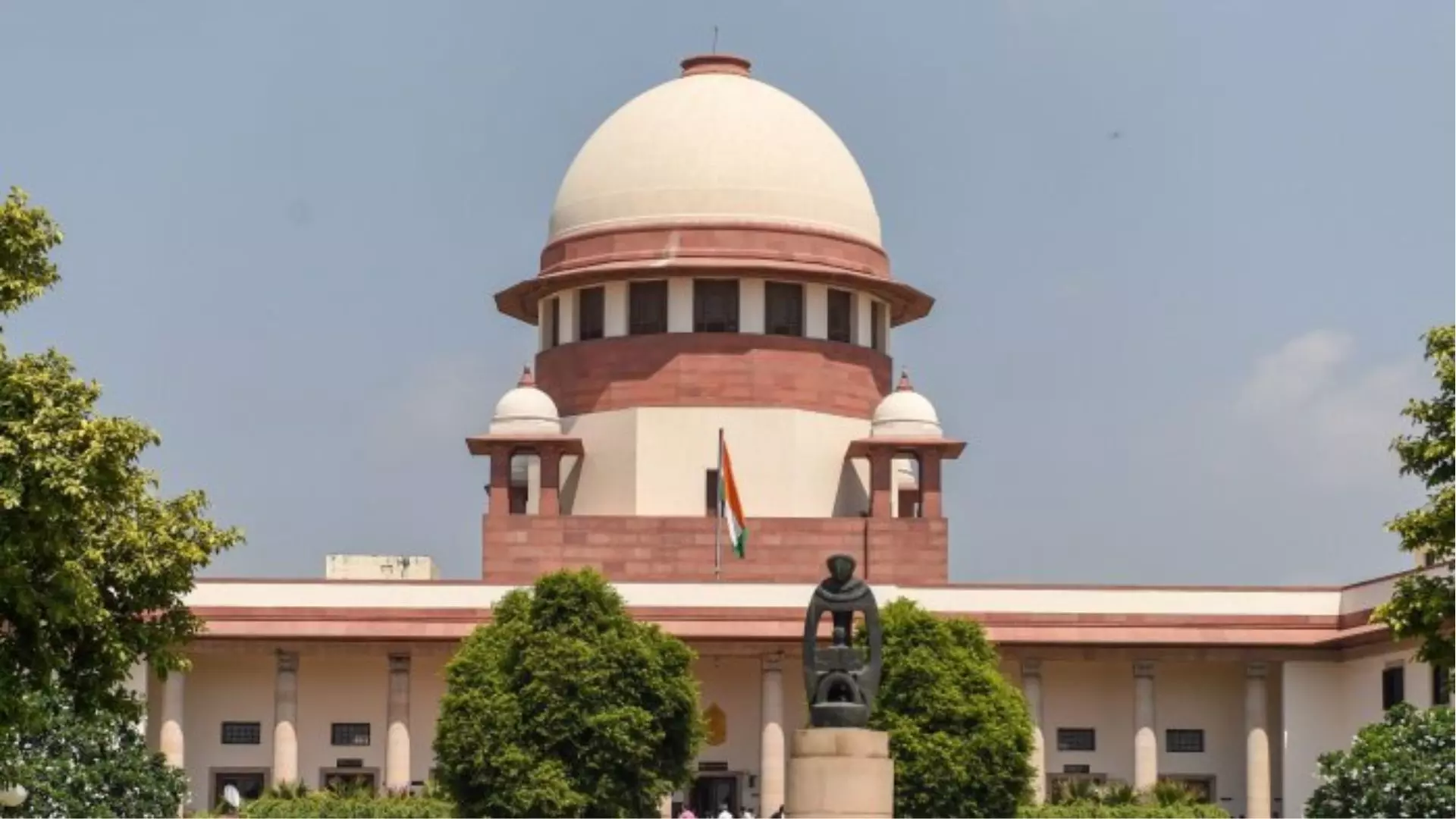
Adani-Hindenburg row: SC backs SEBI probe, rules out SIT investigation into case
Bench headed by CJI DY Chandrachud says facts of case do not warrant transfer of probe to a SIT or other agency

Pronouncing its verdict on pleas on the Adani-Hindenburg case, the Supreme Court on Wednesday (January 3) said that the report by Organised Crime and Corruption Reporting Project (OCCRP) cannot be used to negate the probe findings of the Securities and Exchange Board of India (SEBI) into allegations of stock price manipulation against the Adani Group.
A bench comprising Chief Justice DY Chandrachud and Justices JB Pardiwala and Manoj Misra also said that facts of case do not warrant transfer of probe to a SIT or other agency.
The top court also directed SEBI to complete probe within three months in remaining two cases related to the Adani Group.
‘Cannot regulate SEBI’s power of investigation’
Holding that it cannot regulate SEBI's power of investigation, the bench noted that SEBI has completed its probe in 22 out of 24 cases relating to allegations against the Adani Group.
The top court delivered its verdict on a batch of petitions on the Adani-Hindenburg row over allegations of stock price manipulation by the Indian corporate giant.
While pronouncing the verdict, the CJI said the power of the top court to enter the regulatory domain of the SEBI was limited.
The judgment on the PILs, filed by lawyers Vishal Tiwari, M L Sharma, Congress leader Jaya Thakur, and Anamika Jaiswal, was reserved on November 24 last year.
What SC said during the hearing?
The pleas claimed the allegations that the Adani Group, considered close to the Modi government, inflated its share prices and, after the report of the short seller Hindenburg Research, the share value of various group entities fell sharply.
While reserving the verdict, the bench had said it has no reason to "discredit" SEBI, which probed allegations against the Adani group, as there was no material before it to doubt what the market regulator had done. It said the court does not have to treat what was set out in the Hindenburg report as a "true state of affairs".
The top court had asked SEBI as to what it intends to do in the future to ensure investors don't lose wealth due to volatility in stock market or short-selling.
“We don't have to treat what is set out in the Hindenburg report as ipso facto (automatically) a true state of affairs. That is why we directed the SEBI to investigate. Because for us to accept something which is in the report of an entity, which in not before us and whose veracity we have no means of testing, would really be unfair," the bench had said.
Arguments, counter-arguments
Senior lawyer Prashant Bhushan had argued that SEBI's role in the matter was "suspect" for several reasons because a lot of information was available to the regulator way back in 2014. Solicitor General Tushar Mehta, appearing for the SEBI, had told the bench that there was "a growing tendency of planting stories outside India to influence things and policies inside India".
Mehta had said that investigation in 22 out of the 24 cases relating to allegations against the Adani group were over. One of the PILs had alleged that changes to the Securities and Exchange Board of India Act (SEBI Act) provided a 'shield and an excuse' for the Adani Group's regulatory contraventions and market manipulations to remain undetected.
The top court had then asked the SEBI to independently investigate the matter and constituted a committee of experts headed by former Supreme Court judge Justice AM Sapre.
The Adani Group stocks got bludgeoned on the bourses after the Hindenburg Research made a litany of allegations, including those about fraudulent transactions and share-price manipulation, against the business conglomerate. The Adani Group dismissed the charges as lies, saying it complies with all laws and disclosure requirements.
(With inputs from agencies)

